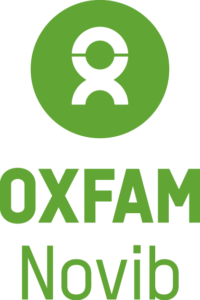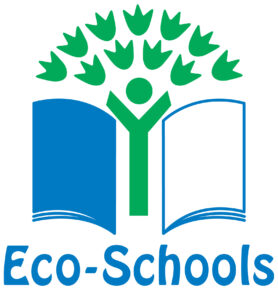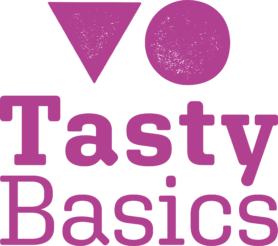Thematic partners and stakeholders
The thematic partner was the societal problem owner that presents a challenge to the participants in the TIC course and was involved during the start, middle and end of the course. In addition to the involvement of the thematic partner, students and lifelong learners consulted other stakeholders in order to analyze the problem and come up with a solution.
A stakeholder refers to any party who can affect or is affected by the societal problem presented by the thematic partner.
We have collaborated with the following thematic partners:
Drowning Deltas
Waternet (thematic partner in 2021 & 2022)
Waternet is the water company for approximately 1,3 million people in Amsterdam and the surrounding area. We are the only water company in the Netherlands that covers the whole water cycle. We treat wastewater, produce ready-to-drink tap water and keep the lakes and watercourses clean and at the right levels. In addition, as our management area lies below sea water level, we must ensure that the maintenance of our dykes is up to standard.
Waternet is very committed to sustainability. In fact, it is one of our three corporate core values (as well as effectiveness and a service-oriented mindset). For instance, in the short term, we aim to avoid and/or reduce greenhouse gas emissions, contribute to the restorations of biodiversity and minimize soil subsidence. In the long term, we hope these efforts result in a resilient management area that can provide services for many generations to come. This long-term goal might require that we must change our management style, somewhere along the pathway towards 2200. Especially in our peatlands areas, which are part of the Green Heart area. That is why this challenge is so important to us.
Agenda IJsselmeergebied 2050 (thematic partner in 2021)
The national and regional government have many ideas for different plans and projects In the IJsselmeer Region. Recently, a regional agenda for the IJsselmeer was drafted up to the year 2050. This regional agenda focuses on the alignment of measures and investments, to create a guiding perspective for the area and a joint knowledge, innovation and implementation plan. The agenda was formulated by the consortium AIJ2050 which consists of several different actors including national and local governmental bodies, interest groups, citizens, NGO’s, Universities and the business community.
The consortium AIJ2050 formulated an agenda for the IJsselmeer region to achieve three overarching goals by 2050:
- Make a world-class landscape of the Ijsselmeer region
- Develop strategies to get to future-proof water management and ecosystem management
- Develop the Ijsselmeer region into an area of vital economic importance
Contesting Governance
The Netherlands Institute for Human Rights (thematic partner in 2022)
The Institute for Human Rights protects, advances, monitors and sheds light on human rights in the Netherlands.

Amnesty International (thematic partner in 2021)
Amnesty International is a human rights organization that began with fighting to ensure the rights of political prisoners. Over the past 50 years, the work Amnesty does has broadened significantly: from the elimination of the death penalty, to defending the freedom of expression, from protecting refugee rights to fighting against political violence and persecution. For more information about the themes on which the Dutch Secretariat of Amnesty works, click here (text in Dutch).
In the TIC course last year, teams working with Amnesty International were tasked with developing innovative ideas about how to understand the approach from governments that use propaganda and disinformation to deny human rights; how to challenge populist-based threats to human rights organizations; and how to communicate the rule of law (framework where rights are protected) in a way that appeals to a larger mass of citizens/groups/activists through making it more relevant and noticeable in their daily lives.
Green Teens
Oxfam-Novib (thematic partner in 2021 & 2022)
Oxfam-Novib is a world-wide development organisation that mobilizes the power of people against poverty. Around the globe, they work to find practical, innovative ways for people to lift themselves out of poverty and thrive. They defeat poverty! Poverty is caused by people, so it should be solved by people. In 93 countries they try to reduce the causes of poverty: hunger, unsafety, injustice, and lack of perspective. Together with local parties they offer means and knowledge to enable people to take care of themselves.
Last year Oxfam-Novib wanted to draw attention to the ways in which the climate crisis is already affecting people in the global south, specifically how it is impacting their right to food and sustainable livelihoods. They wandered how to stimulate/motivate young people to adapt their own behaviour in terms of citizenship and to become active towards government and companies to persuade them to act as promised and help developing countries to deal with the effects of climate change.

Eco-Schools (thematic partner in 2021)
Eco-Schools is a worldwide movement for over 19 million pupils in 68 countries that aims to stimulate sustainable goals at school. Characteristic for the Eco-Schools programme is ‘student-led change’, i.e., the students develop their own plans for making their school environment more sustainable. Eco-schools provides them with a 7-step procedure and 10 possible themes to help them obtain the international quality mark of eco-schools: the Green Flag. There is also a coach available for each school, to support this process.
Last year Eco-schools asked for the development of new tools that aim to involve more teachers and students to their projects.


Green Office Utrecht University (thematic partner in 2021)
Green Office Utrecht University is the central hub where fresh minds and hands from all corners of the university come together to support Utrecht University’s sustainable development. Many activities already take place at the UU within the field of sustainability. However, the clock is ticking and there is always more that can be done. And who can better do this than students and staff members of the UU themselves? With cool projects, activities and campaigns and by creating space for people with good ideas, the Green Office stimulates the community of the UU to think about and act on sustainability issues. Circularity, mobility and food are some of the themes we work on. In 2021 the Green Office will zoom in on biodiversity. Circularity, mobility, food and biodiversity are some of the themes we work on.
Last year the project focused on how to inform students about the importance of biodiversity and how to involve them in projects that aim to stimulate biodiversity on the UU Campus.
Responsible Foods
TastyBasics (thematic partner in 2022)
TastyBasics (https://tastybasics.nl) is a company that advocates food system stewardship and responsible consumption. Responsible foods can be categorized into two aspects within the TastyBasics mission. First of all, they produce so-called real food and have created a collection of unprocessed products based on nuts, seeds, vegetables and fruit. By real food they imply food that is not harmful to your health and in which calories and nutritional value are in balance. Real food limits risks related to obesity, metabolic diseases such as diabetes, cardiovascular diseases and high blood pressure, meaning real foods are a responsible choice for our bodies.
Secondly, another important part of their vision is that circular food production is crucial for a healthy world. A circular economy is designed to maximize the reusability of products and raw materials and minimize value destruction. This is in contrast to the current linear system of food production, which converts raw materials into products that are destroyed at the end of their lives. In their vision, agriculture would be more diverse and the social costs of healthcare would be lower. TastyBasics thinks this must be done and that it can be: eat healthily for our bodies and, in the meantime, make the planet healthier too!




